Patients are seen by multi-disciplinary teams for individualized treatment plans. A comprehensive list of specialty center, experts, and treatment options are below.
-
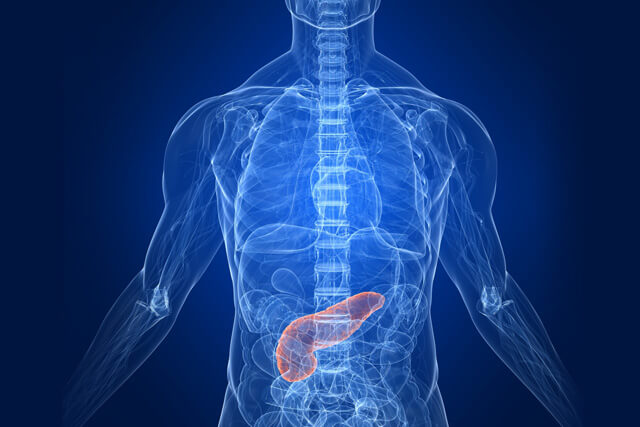
An auto islet transplant may be right for you if you need treatment for pain and illness associated with certain types of pancreatitis, pancreatic divisum or other pancreas disorders
-

We are committed to helping you or your loved one successfully manage diabetes with the latest information, treatments and technology available.
-
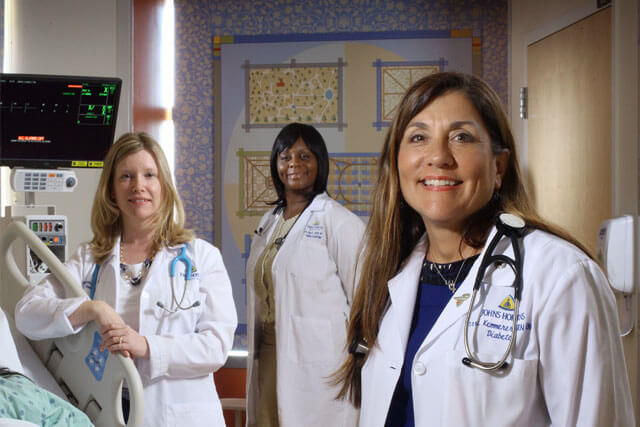
About the Program
The Johns Hopkins Inpatient Diabetes Management Service (IDMS) was implemented on July 1, 2003, as a pilot diabetes clinical consultation service to improve glucose control and reduce length of stay in people with diabetes undergoing cardiac surgery. During the first year of the program, the length of stay for people with diabetes undergoing cardiac surgery was reduced by 58 percent. The IDMS subsequently expanded to other clinical services throughout the hospital. In January 2006, the IDMS became an integral component to a hospital-wide Glucose Control Task Force (GCTF) that was commissioned in response to a sentinel event related to hypoglycemia. Because of ongoing need for diabetes policy development, education and safety monitoring, the GCTF evolved into a standing Glucose Management Committee (GMC) in July 2008 and into the Glucose Steering Committee in July 2010.
Together, the IDMS and Glucose Steering Committee comprise the Johns Hopkins Glucose Management Program. The goals of this program are as follows:
- To perform inpatient diabetes consultations and respond promptly and effectively to improve glycemic control among inpatients with diabetes on adult medical and surgical services. Our clinical services are currently focused on several complex patient populations that require our support, including patients who have undergone cardiac surgery or transplant surgery, patients who are post pancreatectomy and patients who use insulin pumps. Additionally, the IDMS provides consultative services to patients admitted to other medical and surgical units.
- To support the activities of the Johns Hopkins Glucose Steering Committee to promote better glycemic control in a safe and effective manner through the following activities:
- Improve safe coordination of diabetes care throughout the hospital by development and implementation of a standardized, hospital-wide insulin ordersets (written and EPIC) and additional glucose management policies.
- Improve institutional diabetes education through distribution of a Web-based diabetes educational resource and a diabetes nursing superuser program.
- To develop a team approach, in conjunction with the Glucose Steering Committee, to investigate and respond to glucose-related safety events and to generate a report and preventive policy plan in a timely manner.
The Team
Sudipa Sarkar, M.D.
Director, Inpatient Diabetes Management Service
Chair, Glucose Steering CommitteeHolly Bashura, C.R.N.P., C.D.C.E.S.
Lead Nurse Practitioner, Inpatient Diabetes Management Service
Clinical Facilitator, Glucose Steering CommitteeLachelle Purnell-Savoy, C.R.N.P.
Nurse Practitioner, Inpatient Diabetes Management ServiceKimberly Smith, C.R.N.P.
Nurse Practitioner, Inpatient Diabetes Management ServiceKimberly Vaughn, C.R.N.P.
Nurse Practitioner, Inpatient Diabetes Management ServiceAsha Gullapalli, R.D., C.D.C.E.S.
Advanced Practice Dietitian, Inpatient Diabetes Management ServiceYolanda Jones, D.N.P.
Nurse Practitioner, Inpatient Diabetes Management Service -
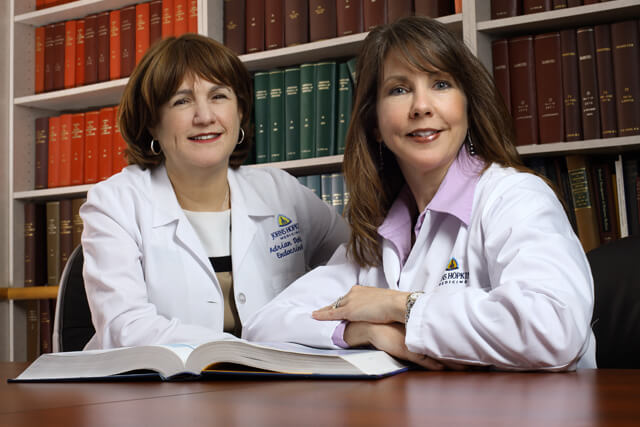
We deliver innovative, state-of-the-art care for boys and men with Klinefelter syndrome, with the goal of maintaining long-term health.
-
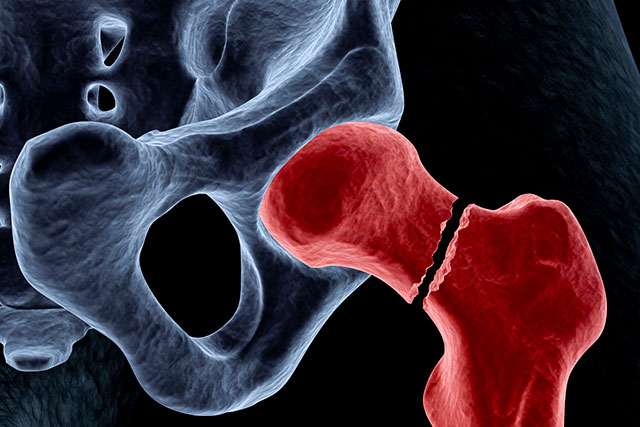
Our team focuses on services designed to prevent, diagnose and treat many kinds of bone diseases, including: osteoporosis, fragility and recurrent fractures, vitamin D deficiency, Paget's disease and other skeletal disorders.
-

Our multidisciplinary center of experts diagnoses and treats all types of pituitary disorders, including pituitary tumors, adenomas, craniopharyngiomas, Rathke's cleft cysts and pituitary gland disorders.
-

Our team of medical specialists offers comprehensive treatment with a proven track record for thyroid cancer.
-
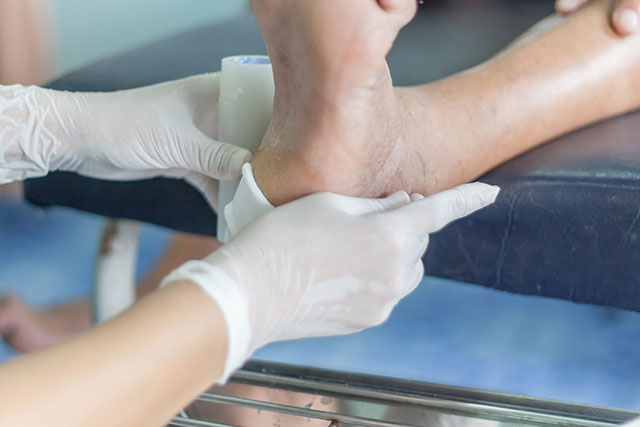
The Johns Hopkins Multidisciplinary Diabetic Foot and Wound Service is a comprehensive, inpatient and outpatient, multi-specialty aimed at healing the recurrent ulceration and decreasing rate of major amputations in diabetic patients.
-

Our team has engaged a multi-disciplinary approach aimed at improving the health and well-being of patients aged 18-25, who have diabetes and are transitioning out of the pediatric diabetes care setting. This clinic is based at Mt. Washington Pediatric Hospital and offers same day consultations with diabetes educators, nutritionists and psychologists depending on the patients' needs.
-

We specialize in the hormonal treatment of transgender men and transgender women undergoing initial transition and maintenance of therapies. We monitor the safety and benefits of treatments, and work closely with the other healthcare providers in the transgender clinic.
-

Our team works closely with the Adult clinic of the Johns Hopkins Cystic Fibrosis Center to offer diabetes and endocrine care that is tailored for patients with cystic fibrosis.
-

About the Program
The Thyroid Second Opinion Service provides expert consultation for patients with thyroid conditions that are complex, previously difficult to manage, or causing ongoing concern for patients and their physicians. In general, patients are seen once for a comprehensive assessment and recommendations for future care by either their current physicians or other local thyroid experts.
The Team
Paul W. Ladenson, M.D.
John Eager Howard Professor of Endocrinology & Metabolism
Professor of MedicineAll patients are seen by Dr. Paul Ladenson, an endocrinologist with long experience in thyroid disease diagnosis and management.
Dr. Ladenson has served as president of the American Thyroid Association, editor of the Journal of Clinical Endocrinology and Metabolism, and chair of the American Board of Internal Medicine’s Endocrinology Board Examination Committee.
Dr. Ladenson’s expertise includes diagnosing and treating hypothyroidism and hyperthyroidism, thyroiditis, and thyroid nodules and thyroid cancer.
-

About the Program
At the Johns Hopkins Clinic for Endocrine Aging, we appreciate the complexity of individual responses to the physical challenges presented by aging. We recognize that hormonal testing needs careful interpretation, with treatment approaches specifically crafted for older adults. Our staff are dedicated to understanding hormonal changes in context and tailoring treatment.
We are actively engaged in research to understand how hormones adapt to support healthy aging. In long-term studies, we can tell the differences between adaptation and disease using many years-worth of data. In contrast, most doctors and patients are trying to make decisions about treatment based on a single laboratory test of thyroid function.
Being thoughtful about the interpretation of current tests can support healthy aging, and a clinic dedicated to older adults like the Clinic for Endocrine Aging helps make that possible. In the future, new assays and assessments are needed to improve our diagnoses. Our research group is actively working to improve and personalize care through the development of diagnostic and therapeutic tools.
The Team
Jennifer Sophie Mammen, M.D., Ph.D., M.Phil.
Assistant Professor of MedicineResources
Schedule An Appointment
-
Schedule online through MyChart
Existing patients: Log into MyChart and schedule online | Sign up for MyChart -
Schedule by phone
New and existing patients: 410-955-9270 Outside of Maryland: 855-695-4872 International patients: 410-502-7683